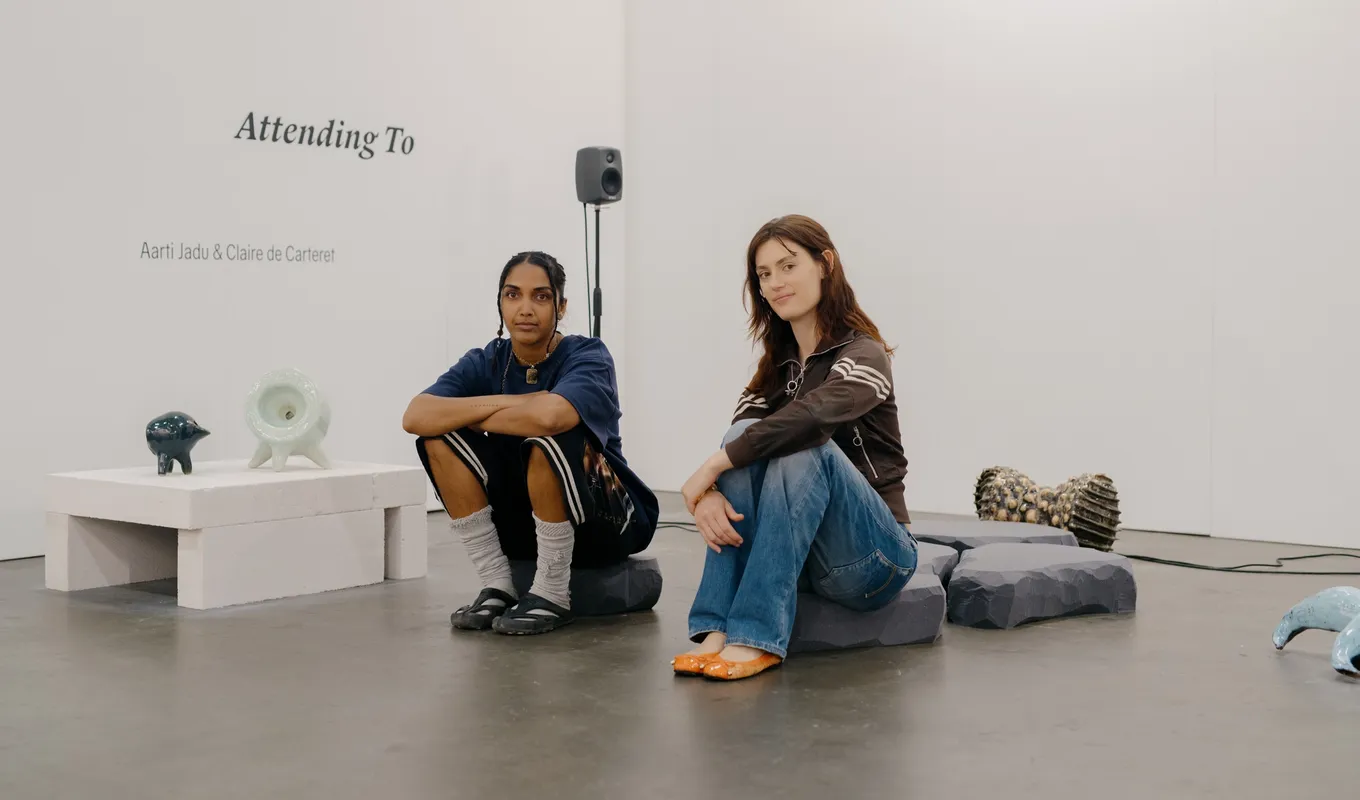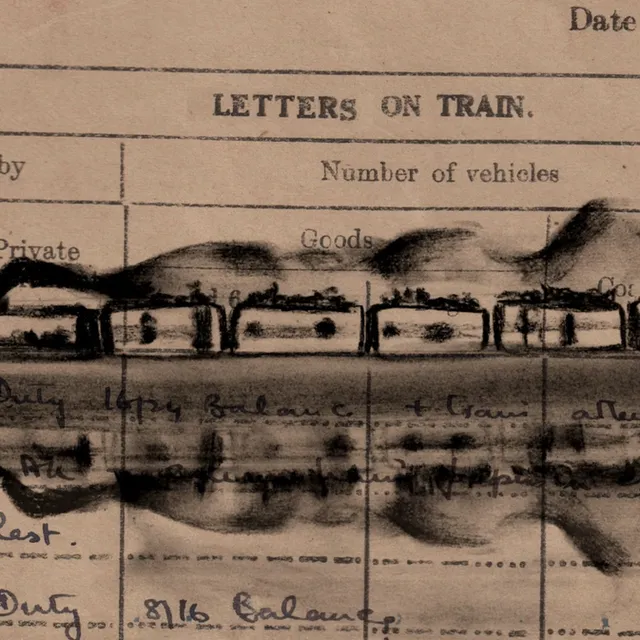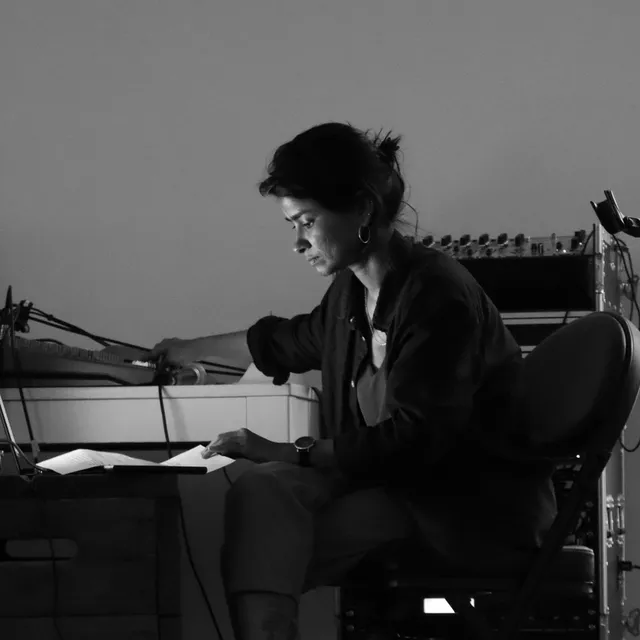“The place we do not know is the place we are looking for”
Priyanka Chhabra, Fileona Endoxa Dkhar, Merve Ertufan & Mochu, Uzma Falak, Kathryn Gledhill-Tucker, Aarti Jadu & Claire de Carteret, Rahee Punyashloka, Hayden Ryan, Thomas Smith, Aarti Sunder, Aasma Tulika, Laura McLean and Suvani Suri
1 Feb → 29 Mar 2025
Gallery

The place we do not know is the place we are looking for is composed of an exhibition and discursive program developed by Liquid Architecture (Naarm/Melbourne) and Sarai-CSDS (Delhi, India) and presented at West Space.
The exhibition brings together artists from across Australia and South Asia exploring the techniques and tools we use to pin down and understand our world.
The place we do not know is the place we are looking for interrogates modernity’s relationship with calculability, quantifiability, and causality, attuning to excesses that cannot be rationally explained by the scientific measurement and technological systems.
Here, the artists consider limits, fragility, porosities, and what it means to speak in languages that poke holes in a world preoccupied with capture, control, and determinacy.
This project takes its title from an essay by philosopher and activist Franco ‘Bifo’ Berardi that calls out to us, here and now:
This place we don’t know is the place we are looking for, in a social environment that has been impoverished by social precariousness, in a landscape that has been desertified. It is the place that will be able to warm the sensible sphere that has been deprived of the joy of singularity. It is the place of occupation, where movements are gathering…
Taking this proposition and Bifo’s notions of the poetic as departure points, the curatorial framework engages with practices that foreground and reactivate sites of erasure and closure, alienation and automation. These sites become scenes to be tenaciously reconfigured by the artists as potential grounds for the emergence of new poetics and relationalities.
Curated by Laura McLean and Suvani Suri.
Featuring artists: Priyanka Chhabra, Fileona Dkhar, Merve Ertufan & Mochu, Merv Espina, Uzma Falak, Kathryn Gledhill-Tucker, Alana Hunt, Shareeka Helaluddin, Aarti Jadu & Claire de Carteret, Rahee Punyashloka, Hayden Ryan, Thomas Smith, Joel Sherwood Spring, Aarti Sunder.
Read on about each artwork in the Room Sheet.

Presented across West Space (1 Feb → 29 March) and Liquid Architecture (1 → 22 Feb) by West Space, Liquid Architecture and Sarai-CSDS, supported by the Centre for Australia-India Relations Maitri Cultural Partnerships Program.
Program
Opening, Sat 1 Feb, 4 → 6pm
With an introduction by exhibition curators Laura McLean and Suvani Suri.
Recompositions, 13 → 23 Feb
A series of discursive events amplifies resonant practices that are inventing languages to hold ineffable dreams, desires, stories, and encounters, unfixed from the discretisation of time, bodies, and sensing.
View the full program via the link below, along with documentation of the discussions and performance lectures that took place February 21 & 22 on Offsite.
Recompositions Book Sections
A place on the West Space bookshelf where ideas, practices, and questions that inform and inspire various readings of the exhibition reside. Read in the gallery, shop online.
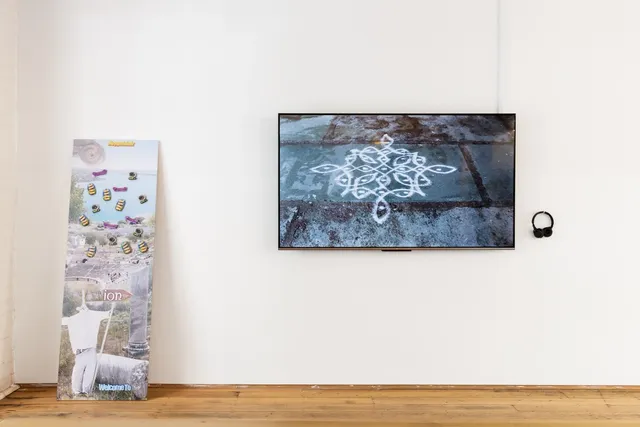

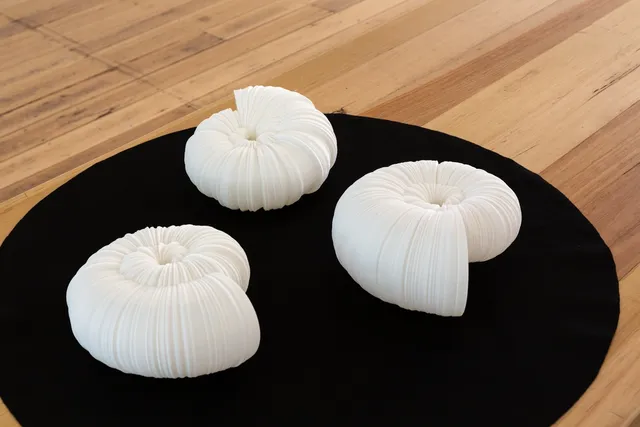

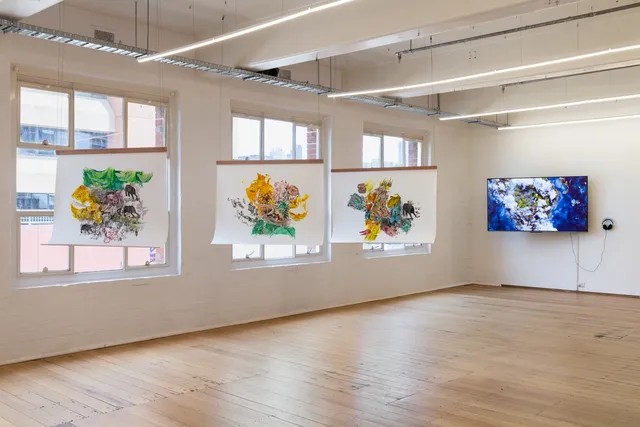
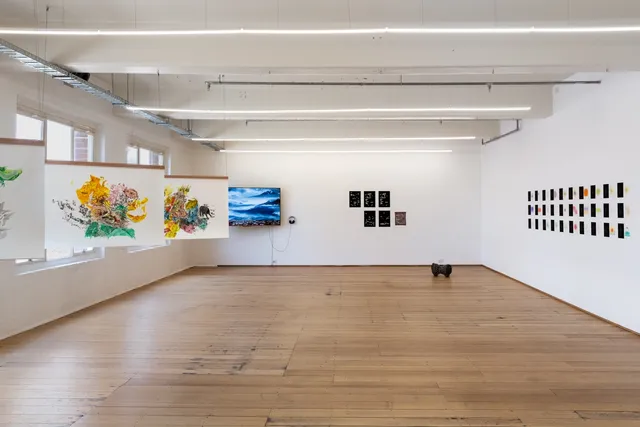

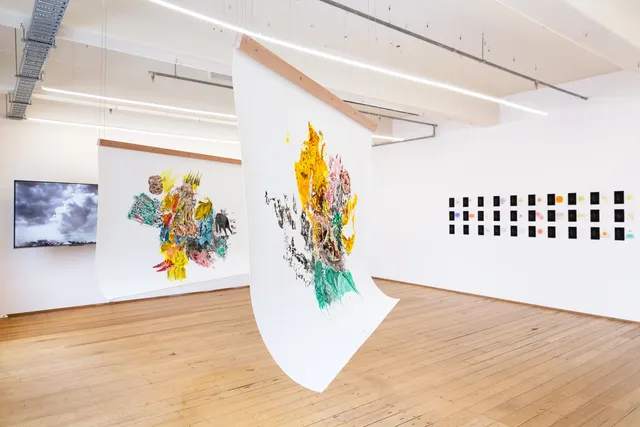

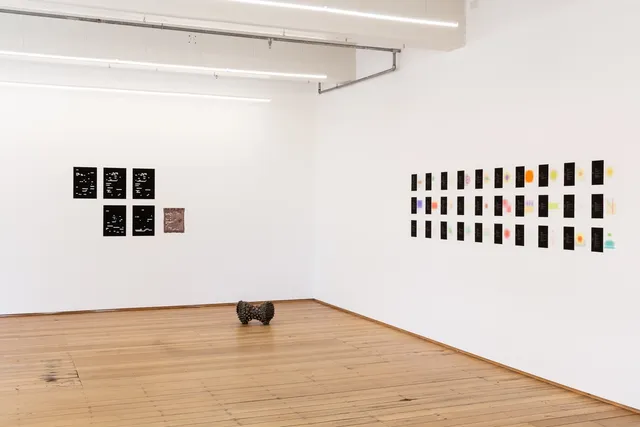

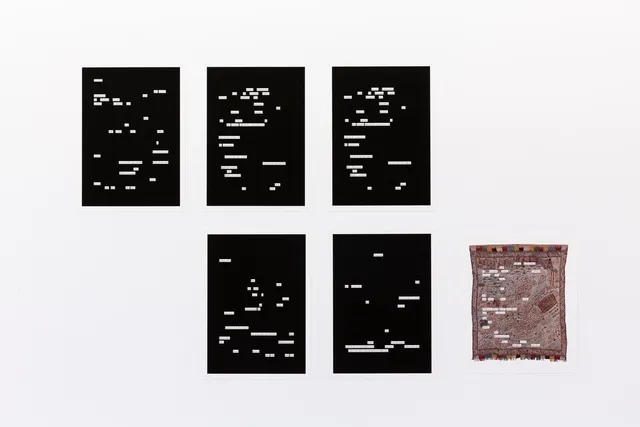
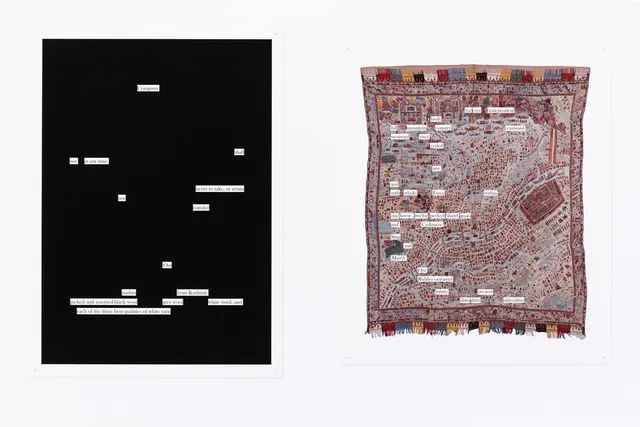
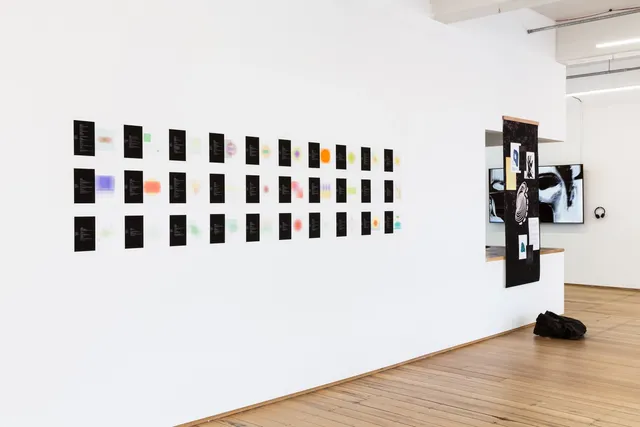

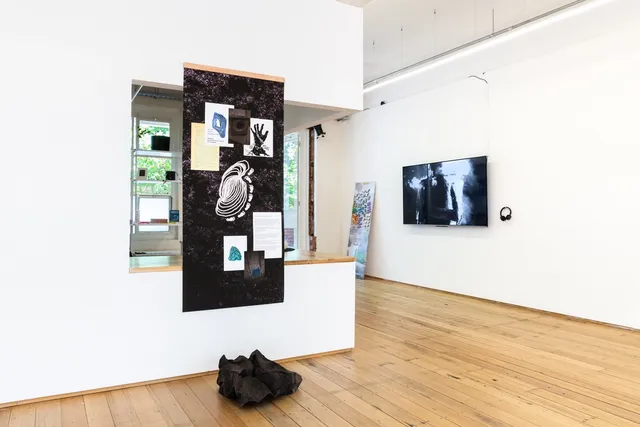


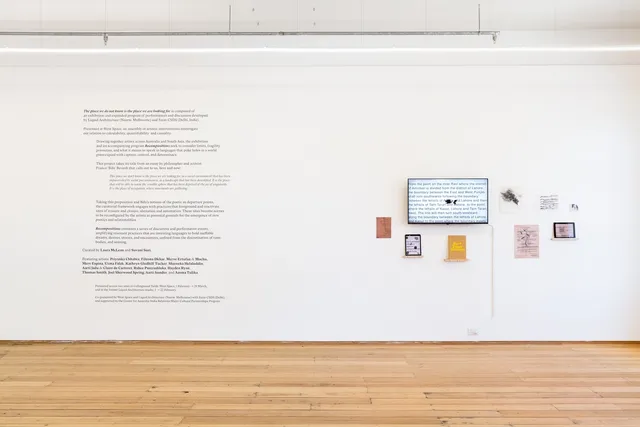

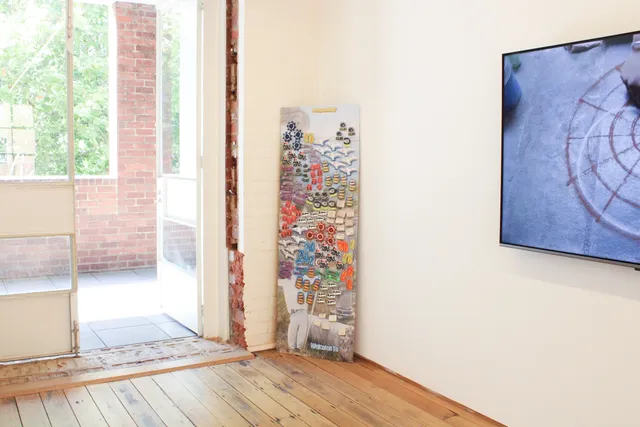


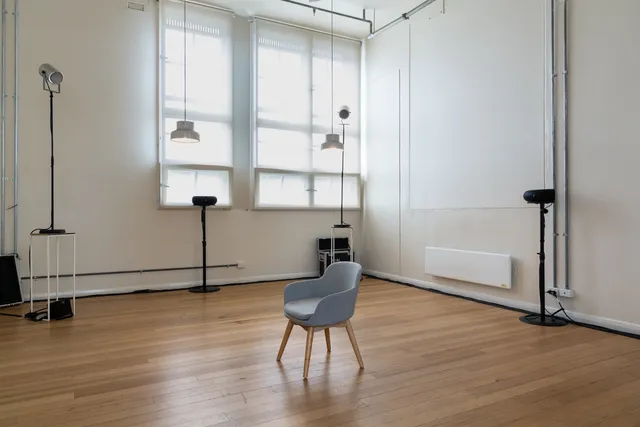

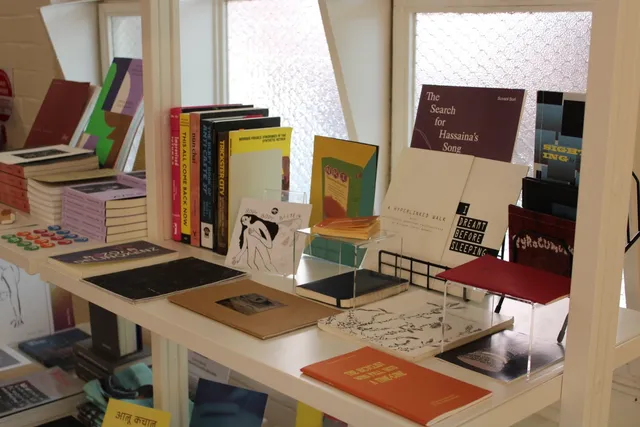
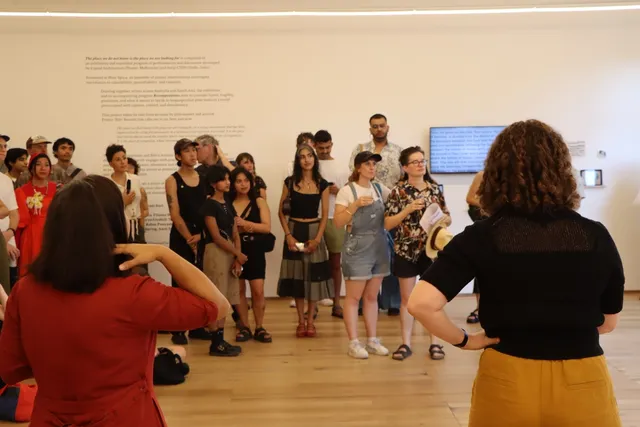

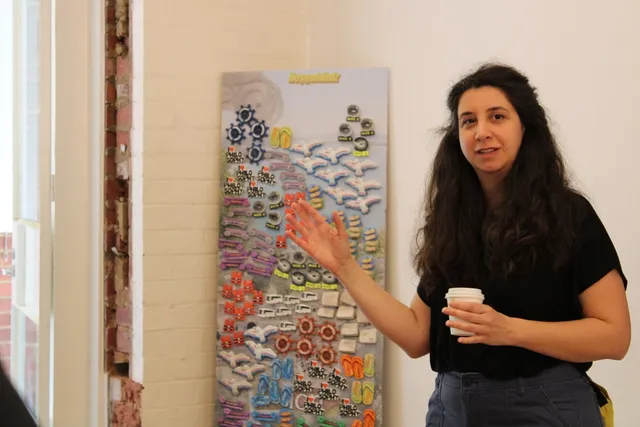
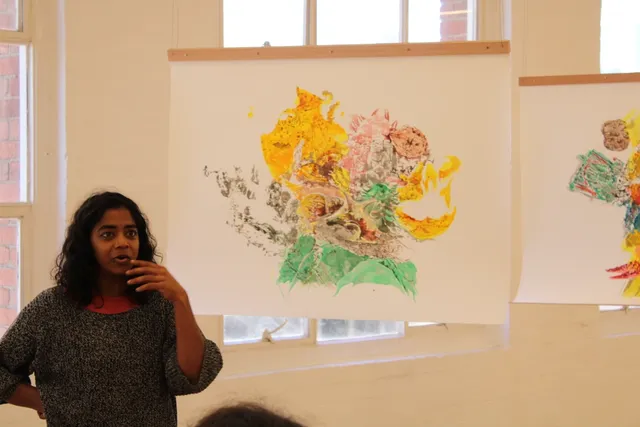







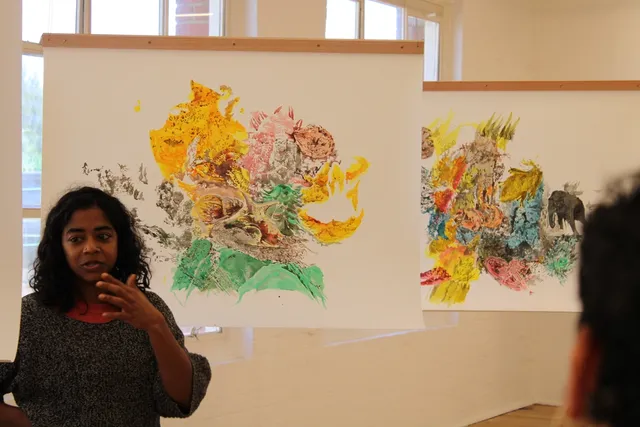
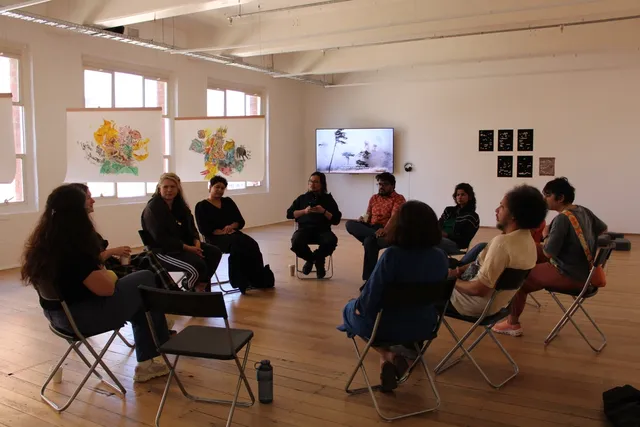

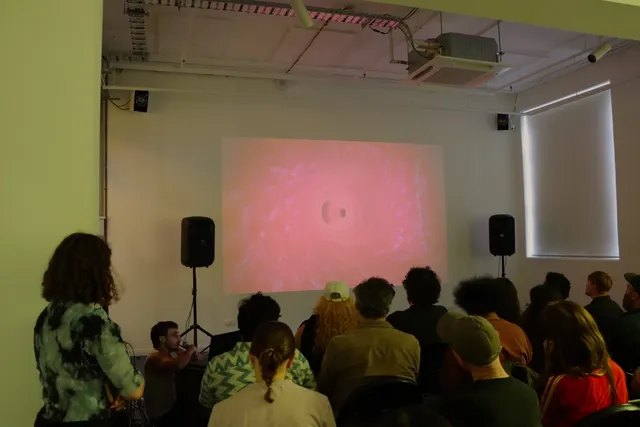



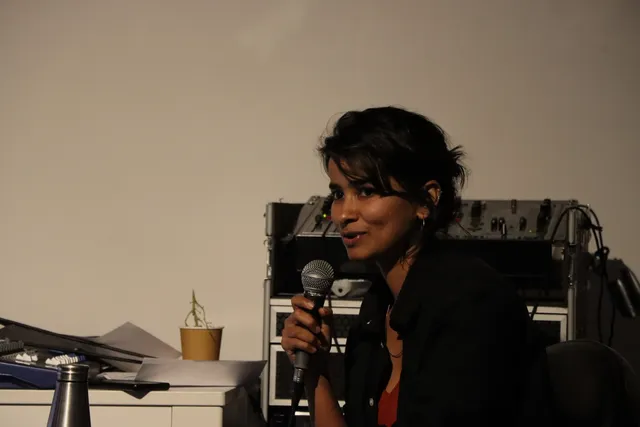

Priyanka Chhabra lives and works out of Delhi, India, as an artist, film director and editor exploring notions of home, memory, landscape and relationships of people to places. She articulates her practice as an archaeology of silences, digging at sites characterised by trauma; physical and emotional. Since 2017 her work has focussed on reconciling memories and experiences of the Partition of Punjab (1947) through a trilogy of works - Rock Paper Scissors (2024), Iqraar-naama (The Agreement, 2022) and Pichla Varka (The Previous Page, 2019).
Fileona Endoxa Dkhar is a Khasi artist living and working between Shillong, India, and Rotterdam, Netherlands. Her practice traverses through the mediums of photography, writing, drawing and filmmaking. Her work often explores indigenous worldviews, with a particular focus on identity, history, and ecology.
Merve Ertufan makes installations, videos, sound-arrangements, texts and objects. Her practice engages with what might be called the microphysics of the mind, observing inconsistencies, gaps and dead-ends in language and habit. Speech, written text and gestural detours of the body frequently combine to form game-like relationships, with compulsive paradoxes, stories, questions and riddles informing their play.
Based between Delhi and Berlin, Mochu works with video and text, arranged as installations, lectures and publications. Technoscientific fictions and subcultural formations feature prominently in his practice, often modulated with anxiety, futurity and weird selfhoods. Hosting cameos from art history, media theory and philosophy, recent projects have explored the nostalgic remains of cyberpunk, civilizational battles on the internet, corporate encounters with deep time, and other psychonautic drifts across landscape, madness and states of intoxication.
Born and raised in Kashmir’s Srinagar, Uzma Falak is a doctoral student in anthropology at the University of Heidelberg and a lecturer at the University of Tübingen. Her doctoral research focuses on Kashmir women’s sonic praxes as enactments of alternate spatiotemporal imaginaries.
Kathryn Gledhill-Tucker is a Nyungar technologist, writer, and digital rights activist living on Whadjuk Noongar boodjar. Their work explores custodial approaches to data management, interrogating systems of surveillance, and using creative technology to explore coding as a liberatory practice.
From a background of group devotional singing and folk tradition, Aarti Jadu seeks to integrate participatory work into contemporary composition and interactive works of art. Claire de Carteret is a ceramicist exploring clay chemistry, technologies, and resonating sculptural form. They share an interest in how listening rather than hearing, cultivates intimacy, subjective interpretation and reflection.
Rahee Punyashloka is an artist, writer, researcher, and experimental filmmaker based out of Bhubaneswar and New Delhi. Working across disciplines, he seeks to illuminate the vastly un/underrepresented artistic history of the anti-caste struggle and the Dalit identity through interventions around lingering absences and speculative extrapolations within the archive.
Hayden Ryan is a Yuin First Nations sound scholar and spatial audio artist from the south east coast of New South Wales, currently in Naarm/Melbourne. His work centres Indigenous sonic and spatial practice, a concept that realises the inextricability of land, body sound and culture within Indigenous knowledge systems.
Thomas Smith is an Eora/Sydney based artist, musician, educator and researcher. His practice combines performance, video, electronic music, speculative fiction, websites, curatorial projects and critical writing. Thomas’ work is concerned with the social effects of computational systems, the politics of creative economies, emerging digital subjectivities and electronic music as a mode critical inquiry.
Aarti Sunder is an artist living and working in India. She works with moving image, writing, drawing and painting. Her interests lie within techno-politics, focusing on the study of infrastructure and society – from contemporary labour practices, fictional edges of protest, myth, and digital-terrestrial play to expanded platform politics.
Aasma Tulika is an artist based in Delhi. Her practice engages with moments that disturb belief systems, and their intersection with technology and social relations. She works with unwritten codes, fictional events and peer networks that appear in the form of video installations, sound albums, performances and publications.
Laura McLean is a curator and researcher based in Naarm/Melbourne. As Associate Curator at Liquid Architecture and Artistic Director at Blindside, she works with experimental practices and critical ideas engaging sound, listening, and media technologies across Australia and the Asia-Pacific.
Suvani Suri is an artist, writer and curator in New Delhi, India. Suvani works with sound, text, and intermedia assemblages that think through modes of listening and voicing. Her artistic, research, and curatorial inquiries plumb the gaps, cracks, and leaks found within the technological processes of production, mediation and perception of sound.
Related
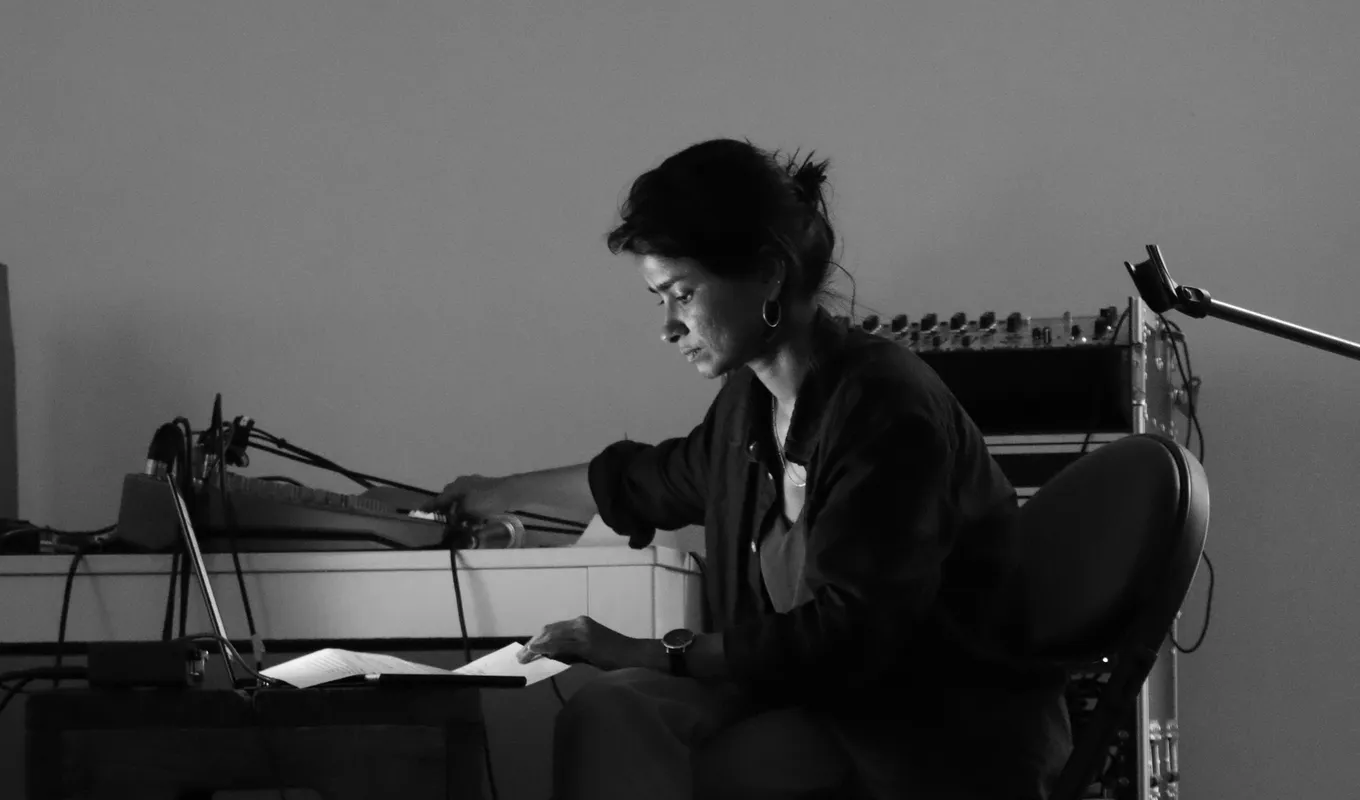
“Recompositions”
Vaibhav Abnave, Priyanka Chhabra, Merve Ertufan & Mochu, Merv Espina, Kathryn Gledhill-Tucker, Shareeka Helaluddin, Alana Hunt, Aarti Jadu & Claire de Carteret, Ronen Jafari, Machine Listening, Laura McLean, Rahee Punyashloka, Raqs Media Collective, Hayden Ryan, Joel Sherwood Spring, Aarti Sunder, Suvani Suri, Thomas Smith, Aasma Tulika and Book Show-I
13 Feb → 23 Feb 2025
